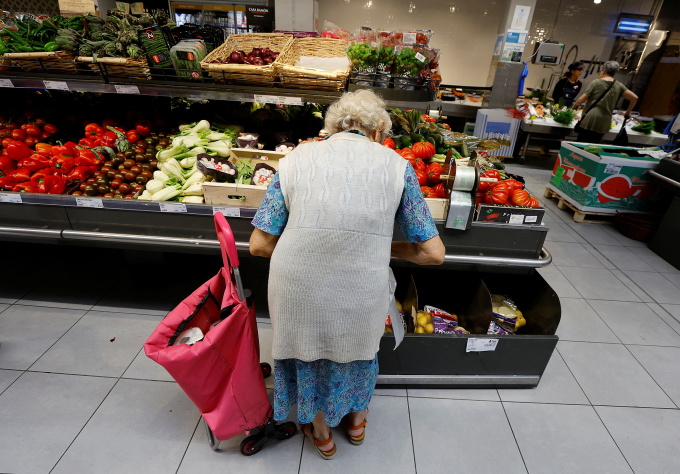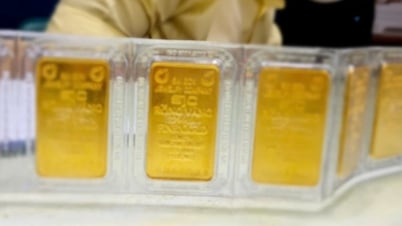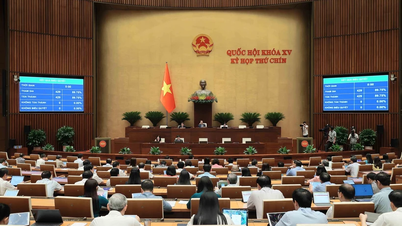Prices continue to be a headache for European officials, as inflation accelerates again after eight months of decline.
The latest figures released by the European Union (EU) on January 5 showed that inflation in the eurozone was 2.9% in December 2023, up 0.5% from the previous month. This is the first time since April 2023 that inflation in the 20 eurozone countries has accelerated.
Prices of food, alcoholic beverages, tobacco and services all increased compared to the same period last year. Meanwhile, energy prices decreased slightly. These factors pushed inflation up.
Inflation also rose again in Europe's two leading economies , France and Germany. Germany's consumer price index (CPI) rose 3.8% in December, up from 2.3% in November. In France, the CPI rose 4.1% in December. In both countries, rising energy prices were the cause of the increase in inflation.

Customers shop at a supermarket in Nice (France). Photo: Reuters
The December rebound in inflation was widely expected by economists, as governments gradually withdraw generous subsidies from last year’s energy crisis. In addition, the base against which prices were compared was low last year.
The figure is also in line with the European Central Bank's (ECB) forecast that inflation will bottom out in November 2023 and then hover around 2.5-3% through 2024, before falling to 2% in 2025.
Analysts say there are two factors that will affect inflation in the eurozone in the long term: workers' wages and geopolitical tensions.
Wage negotiations in most countries in the bloc are due to be completed in the first quarter, but data will not be released until May, so policymakers will have to wait until mid-year to get a full picture.
Geopolitical tensions are increasingly unpredictable. The war in Gaza has had little impact on fuel prices, but recent logistics disruptions in the Suez Canal are driving up shipping costs.
Inflation data for the final month of 2023 also complicates the forecast for a possible rate cut this year. Investors are now betting on the ECB cutting rates six times this year, starting in March. Meanwhile, ECB officials say they will have to wait until mid-year to be confident that inflation is under control.
Ha Thu (according to Reuters, CNN)
Source link






![[Photo] Nearly 3,000 students moved by stories about soldiers](https://vphoto.vietnam.vn/thumb/1200x675/vietnam/resource/IMAGE/2025/5/17/21da57c8241e42438b423eaa37215e0e)























































































![[Infographic] Numbers about the 2025 High School Graduation Exam in Dong Thap Province](https://vphoto.vietnam.vn/thumb/402x226/vietnam/resource/IMAGE/2025/5/17/c6e481df97c94ff28d740cc2f26ebbdc)










Comment (0)